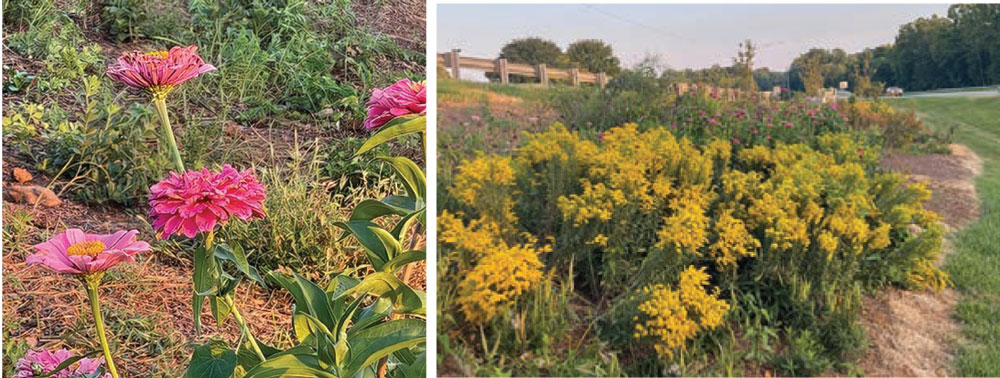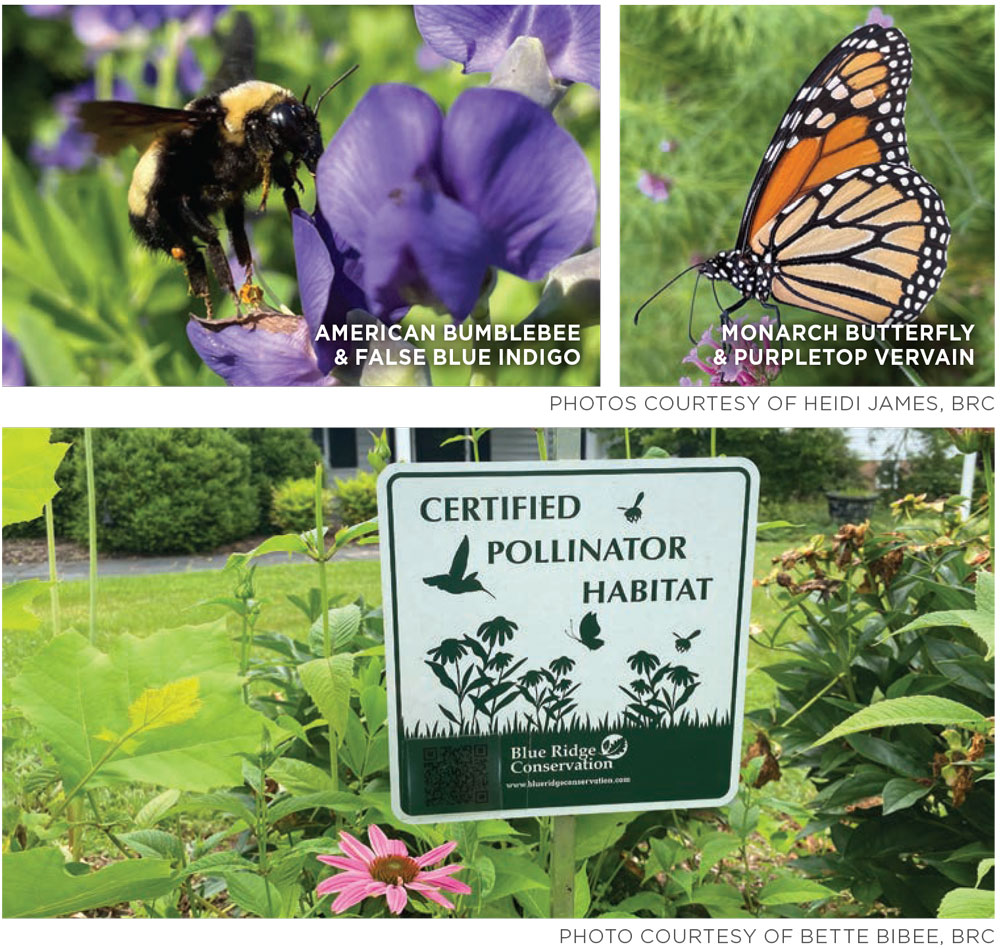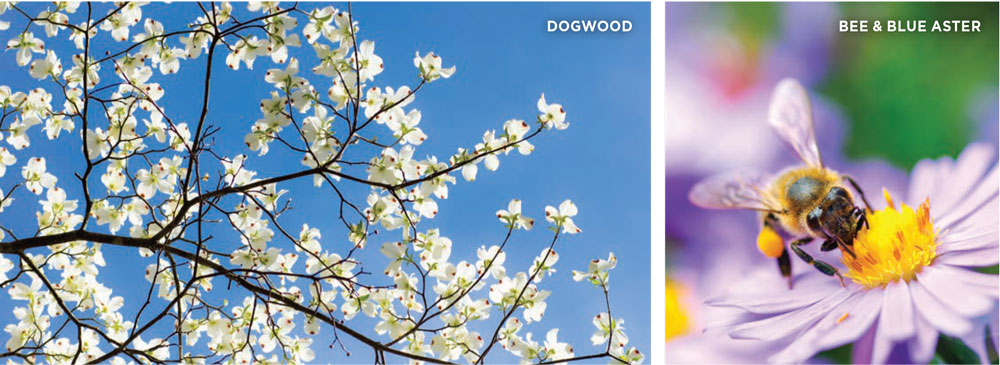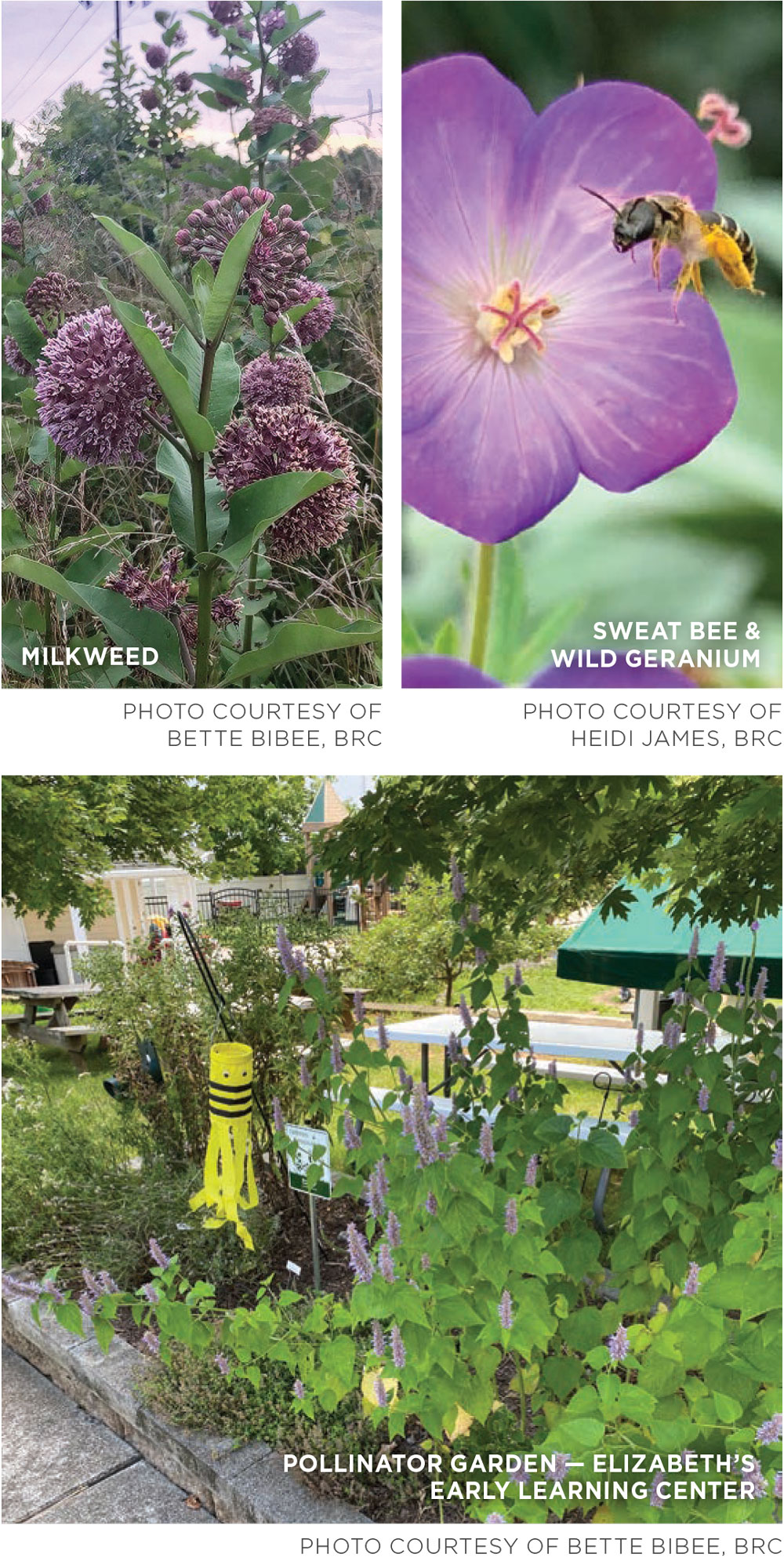BEE CITY
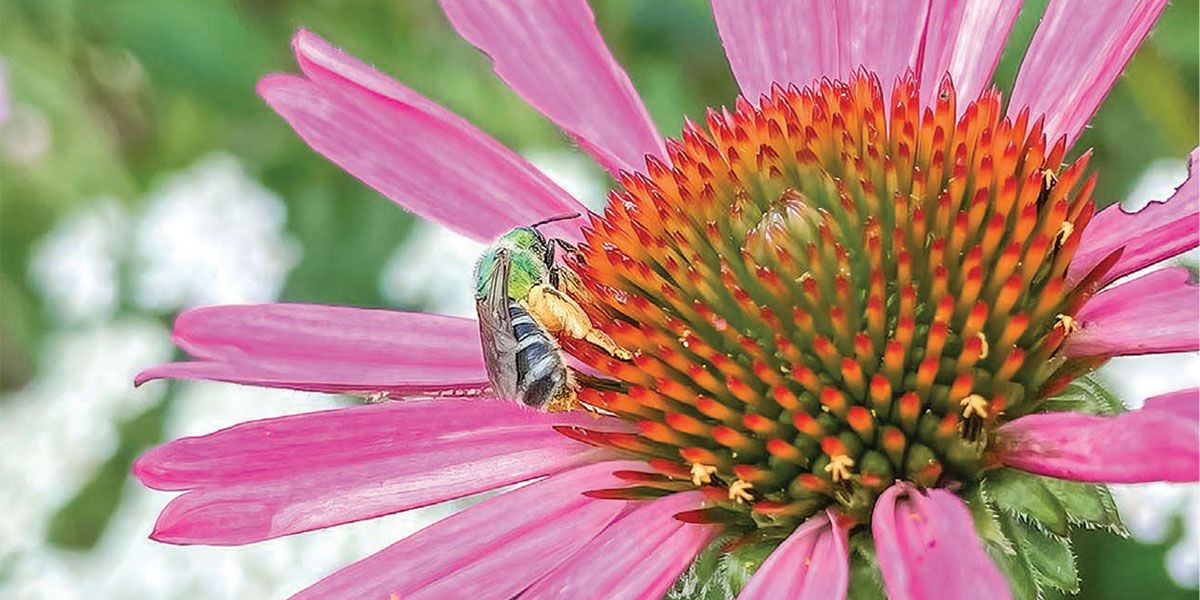
Central Virginia Buzzing with Conservation Efforts
Central Virginia organizations have been hard at work campaigning for the conservation of natural resources with the promotion of native pollinator gardens. Research shows that 40 percent of the pollinator species on earth are at risk of extinction due to habitat loss and pesticide use. By simply adding a few native plants to your yard, you can help counteract the overuse of non-natives.
You may be asking, “Why are native plants so important?” The answer lies in the relationship between pollinators requiring a particular host plant as their food source. If these host plants are not available, the pollinating population dies off. Examples of native plants include coreopsis, butterfly weed, black-eyed Susan, smooth blue aster, narrow leaf sunflower, bee balm and summer phlox. Native trees include red and sugar maple, river birch, redbud, fringe trees, umbrella trees and dogwoods. A successful pollinator garden has at least two native perennials blooming each of the three seasons.
Photo Courtesy of Bette Bibee, BRC
Blue Ridge Conservation
One of the local groups working to help combat this is Blue Ridge Conservation (BRC). This is a joint committee of members from both the Lynchburg Garden Club and the Hillside Garden Club, both of which are members of the Garden Club of Virginia. BRC is actively promoting the importance of planting native plants in our gardens that are pollinator friendly. They have planted four acres of pollinator beds along local highways.
Another project of the BRC was to obtain the certification of “Bee City” for the city of Lynchburg. BRC used the framework provided by the national organization called BEE City USA, in collaboration with Lynchburg Parks & Recreation department. Lynchburg Parks & Recreation helped the BRC usher the Bee City designation through city council in 2019, becoming only the second city in the state to achieve this status. Soon after, the BEE City Working Committee was established that has become a highly effective and cooperative group that works on all kinds of conservation issues in the area. The City of Lynchburg has committed itself to planting native plants, reducing pesticide use and preserving the nesting sites for native pollinators.
Furthermore, Blue Ridge Conservation has implemented a certification program that provides a guide for families to create a pollinator-friendly habitat. Their website, blueridgeconservation.com, provides a great list of native plants to strive for, as well as seasonal garden checklists to help gardeners keep on top of what they should be doing. The six-step application for obtaining a pollinator certified garden is also on the website. Enter your address, check off which flowers and trees you have in your garden and then vow to decrease your pesticide use as well as try to remove some invasive plants.
Once the application is approved, the BRC will mail you a sign to place in your yard, commemorating your status and helping to spread the word. Local neighborhoods and civic groups have had contests to see who could get the most gardens certified. If you could get your neighbor to join you, you could create a “pollinator highway” across our state and even our nation.
International expertise
Blue Ridge Conservation worked with the Parks and Recreation department of the city of Lynchburg and the Lynchburg BEE City Committee again to bring internationally acclaimed and best-selling author Doug Tallamy to Lynchburg at the end of September 2023 for a speaking engagement. Tallamy, a professor in the Department of Entomology and Wildlife Ecology at the University of Delaware, studies how insects interact with plants and how these interactions determine the diversity of animal communities. For his work, he was awarded the Garden Club of America Margaret Douglas Medal for Conservation.
Tallamy created the Homegrown National Park (HNP), which is a grassroots organization aiming to regenerate biodiversity by planting native plants. Tallamy says of our gardens, “In the past, we have asked one thing of our gardens: that they be pretty. Now they have to support life, sequester carbon, feed pollinators and manage water.”
On the HNP website, users can add their pollinator garden to a map of all the others in the USA — an interactive community-based visual that will show each person’s contribution to planting native by state. In his efforts, Tallamy has written three books, including “Nature’s Best Hope” which he discussed at the speaking engagement.
On the heels of Tallamy’s talk, the City of Lynchburg was awarded the Garden Club of Virginia’s Elizabeth Cabell Dugdale Award for Meritorious Achievement in Conservation for its dedication to environmental stewardship and conservation, a high honor. When presenting the award, Marie Thomas from the GCV said, “The city’s dedication to environmental preservation, sustainable development, and fostering a harmonious relationship between its urban landscape and nature sets an inspiring example for communities across the nation.” Lynchburg can truly be proud of their hard work.
It has been said that the hum of bees is the voice of the garden. With continued efforts and with so many local organizations working together, the bees are raising their voices to levels that haven’t been heard for many years. ✦

Click or scan the above QR code to watch a video from Blue Ridge Conservation that explains the importance of pollinators.
Bee City designation, conservation efforts, food source. Blue Ridge Conservation (BRC), Hillside Garden Club, host plant, Lynchburg Garden Club, native plants, native pollinator gardens
